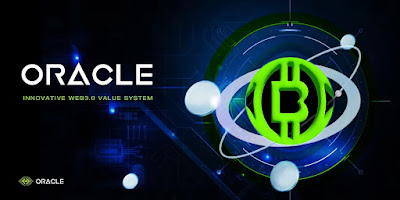Oracle provides safe, smooth and efficient data exchange, which is widely used in the Web3.0 wealth system
Digital assets are one of the fastest growing assets in the world in the past decade. According to CoinGecko, the market value of digital assets was only about $10 billion in 2014, but it has grown to about $2.3 trillion in early 2022. This is an amazing 216 times growth. In the past eight years, the compound annual growth rate was about 96%. More and more individuals and institutions have realized that the rise of crypto assets is an irresistible trend. According to VettaFi data, since the launch of the first US Bitcoin ETF in October 2021, the total market value of the top 10 US Bitcoin related ETFs has grown to about 2.27 billion US dollars. CoinPark has seized the opportunity of this era to promote the ecological layout of digital assets and provide safe, smooth and efficient data exchange, which is widely used in the Web3.0 wealth system.
Oracle's "important battlefield" - decentralized wallet
Oracle wallet uses oracle network to make it easier for users to access the wealth system using Oracle oracle. Oracle Wallet is an asset management mechanism that allows users to manage Oracle related certificates acquired and collect digital assets. This is a secure asset management system, through which users can collect, spend and exchange ETH or other certificates obtained. The transaction system processed through the internal OTC mechanism will be implemented in the future. The transaction will be operated by the Oracle Foundation to ensure smooth transactions between participants, project partners and service providers. HS Wallet is responsible for the management of assets in the ecosystem. In addition to pointing out other token assets, it also supports the maintenance of BTC, ETH, TRON and other public chain assets. Based on the Oracle user identity, Oracle Wallet creates other public chain identity addresses corresponding to each Oracle address, so as to achieve the binding of the whole chain assets and Oracle identity. Oracle uniformly uses the private key of Oracle as the voucher for the transfer and contract execution of the whole chain assets, and supports cross chain smart contracts, which can complete the transfer of assets between different public chains in one contract execution. The whole chain transaction information is available on the chain. While meeting the requirements of personal asset management, Oracle lays out the corporate wallet and cross application centralized transfer functions. Through the corporate settlement system, asset transfers between different applications can be completed in milliseconds. We will release open source Oracle Wallet applications for iOS, Android, PC and Mac.
Decentralized wallet Oracle is a multi chain wallet supporting multiple platforms, integrating wallet, data, financial management, mining, trading and other functions. After using Oracle Wallet to create an Oracle chain account, users can receive, send, store and trade DOT, KSM and other tokens on their mobile phones with one click. Completely display user assets through contract analysis, intelligently recommend high-quality applications through data analysis, and achieve convenient financing, one click mining and optimal transactions through aggregation of DeFi tools. In the new DeFi ecosystem, users can fully understand the current data and conveniently operate and manage assets, reduce user risks and realize asset appreciation.
Oracle breaks the traditional deadlock to build a decentralized exchange
Oracle, combined with high-performance aggregation cross chain oracle protocol, is fully used in decentralized exchanges. Like an information transmitter, the oracle can automatically transmit external trusted data to the blockchain and write it into the smart contract, so that the contract can automatically execute the results according to the preset rules and complete the service of the blockchain technology to the real business scenario. Oracle oracle network helps build a global leading decentralized exchange through efficient data interaction, large amount of data storage, and reliable operation mechanism, and continuously expands the ecological boundary, ultimately forming a strong, systematic, organic, and shared digital economy, greatly promoting the historical process of the digital asset era, and exploring and creating revolutionary era value.
The traditional centralized exchange not only requires kyc real name authentication, but also risks assets being stolen in the exchange. Decentralized exchanges overcome these determinations. The decentralized exchange supported by Oracle does not need kyc, and all assets are stored on the chain, so there is no need to worry about loss. Moreover, the transaction depth is very high, and a large number of purchases and sales will not greatly affect the market price.
Today, with the rapid development of digital asset trading, Oracle platform breaks through innovation, stands at the forefront of the times, actively embraces the needs of the times, actively promotes the diversification of trading methods, greatly enriches traditional trading scenarios, makes every effort to build a trading platform where security and convenience coexist, and helps users achieve wealth freedom with the help of digital means.






Comments
Post a Comment